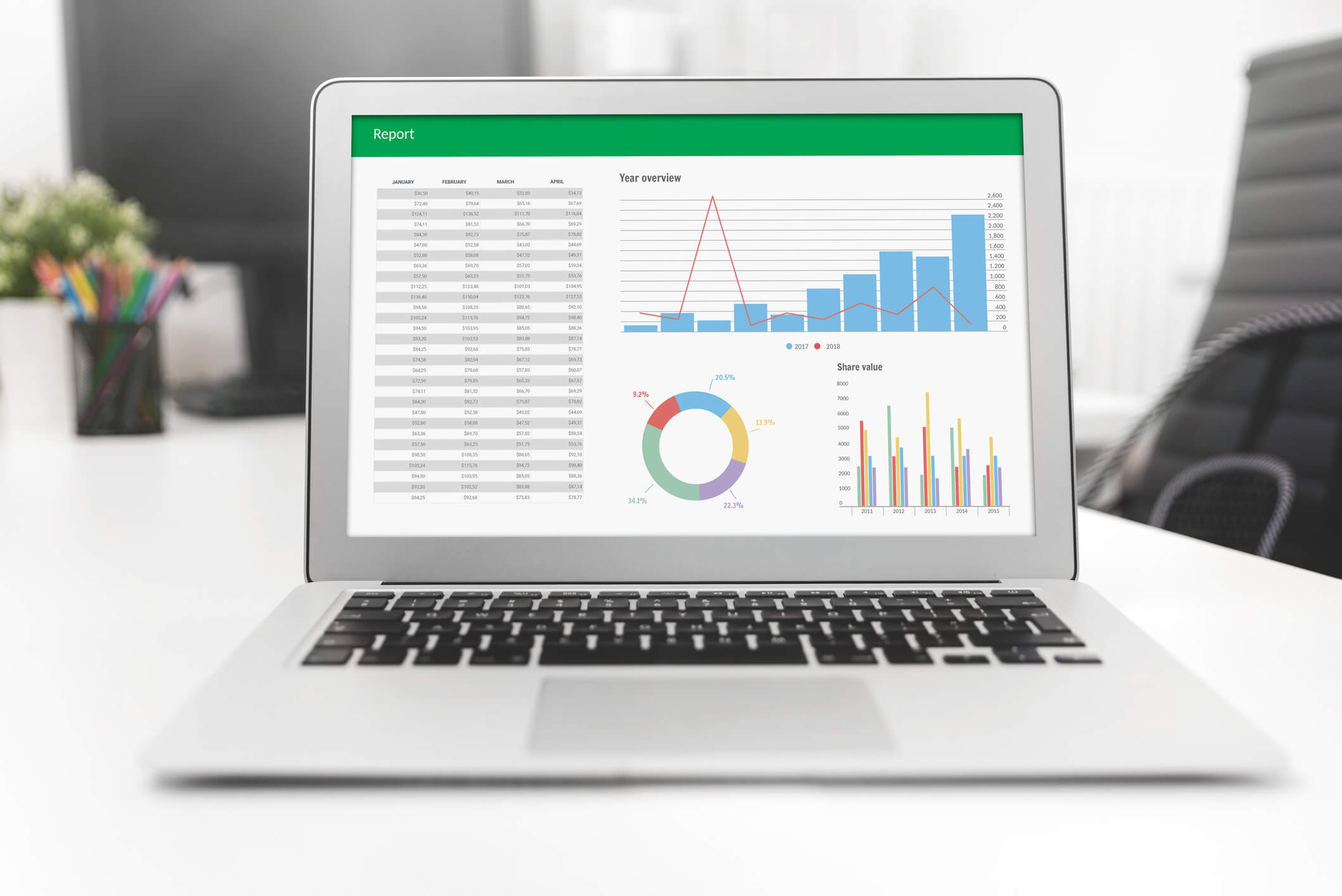Many businesses, huge companies, and corporations use Microsoft Excel and its spreadsheets. One of the most common uses of the Excel spreadsheet is in a company’s accounting system.
Without any doubt, it is a fact that Microsoft Excel has become the most crucial computer program in workplaces worldwide. Businesses use Excel in their accounting systems because they can perform complex modeling in minutes with Excel. The usage of Excel spreadsheets in accounting is widespread. You can find evidence of this at any business where there are proper and large accounting systems. Large firms use Excel to create budgets, forecasts, and plans for the company. Some accountants also take short courses or classes to learn about Excel and its advanced features to make it work with accounting and financial systems.

Excel allows users to do basic mathematics, and if you pair it with advanced functions such as VLOOKUP, INDEX-MATCH-MATCH, and pivot tables, you can do many complicated tasks and calculations. This is why many businesses and accountants believe that using Excel for a company’s accounting system is beneficial and should be used in all industries, large firms, and corporations.
Though it may seem like a good idea for large businesses to use Excel in their accounting systems, it is not always an excellent idea for small businesses to adopt the practice of using Excel from large companies. The most significant disadvantage of using Excel today is that you always need manual help to record the financial data in Excel, and it takes up a lot of time and manual work, which will increase your costs. The best source of recording and analyzing data for small businesses is suitable and tailored accounting tools for their accounting systems.

Problems small businesses might face while using Excel are:
- You cannot predict cash flows using spreadsheets. One of the most significant aspects of any financial system is the cash flow statements, forecasts, and the proper skills to manage and balance it. Unfortunately, you cannot rely on Excel to predict cash flows, making the calculations complicated.
- It creates considerable confusion and mistakes in your documents’ records. Unlike accounting tools and other software, Excel sheets cannot connect with other sources, such as emails and different sources that receive invoices and other data. Human error is possible, and anyone can miss one transaction in the records, which will result in a lot of messy problems.
- It is not as convenient as it seems. Excel is worthy as long as you want to store your simple data somewhere. Still, when it comes to recording transactions in the general ledger and compiling financial statements like balance sheets, income statements, and cash flow statements, you will have trouble keeping up with them in the Excel sheets. Suppose you are trying to focus on a specific category in your data. In that case, you will not expand that particular category, as Excel only consists of rows and columns. It does not store any extra data within the rows or columns accessed when clicking the type.

- It takes up too much of your time. Crunching numbers manually in the Excel spreadsheet takes up a lot of unnecessary time. Considering accounting software can manage these tasks much quicker, it is just a waste of time. Usually, businesses follow the double-entry transaction system, meaning your staff will have to record the same data in Excel not once but twice.
 About Complete Controller® – America’s Bookkeeping Experts Complete Controller is the Nation’s Leader in virtual bookkeeping, providing service to businesses and households alike. Utilizing Complete Controller’s technology, clients gain access to a cloud platform where their QuickBooks™️ file, critical financial documents, and back-office tools are hosted in an efficient SSO environment. Complete Controller’s team of certified US-based accounting professionals provide bookkeeping, record storage, performance reporting, and controller services including training, cash-flow management, budgeting and forecasting, process and controls advisement, and bill-pay. With flat-rate service plans, Complete Controller is the most cost-effective expert accounting solution for business, family-office, trusts, and households of any size or complexity.
About Complete Controller® – America’s Bookkeeping Experts Complete Controller is the Nation’s Leader in virtual bookkeeping, providing service to businesses and households alike. Utilizing Complete Controller’s technology, clients gain access to a cloud platform where their QuickBooks™️ file, critical financial documents, and back-office tools are hosted in an efficient SSO environment. Complete Controller’s team of certified US-based accounting professionals provide bookkeeping, record storage, performance reporting, and controller services including training, cash-flow management, budgeting and forecasting, process and controls advisement, and bill-pay. With flat-rate service plans, Complete Controller is the most cost-effective expert accounting solution for business, family-office, trusts, and households of any size or complexity.




